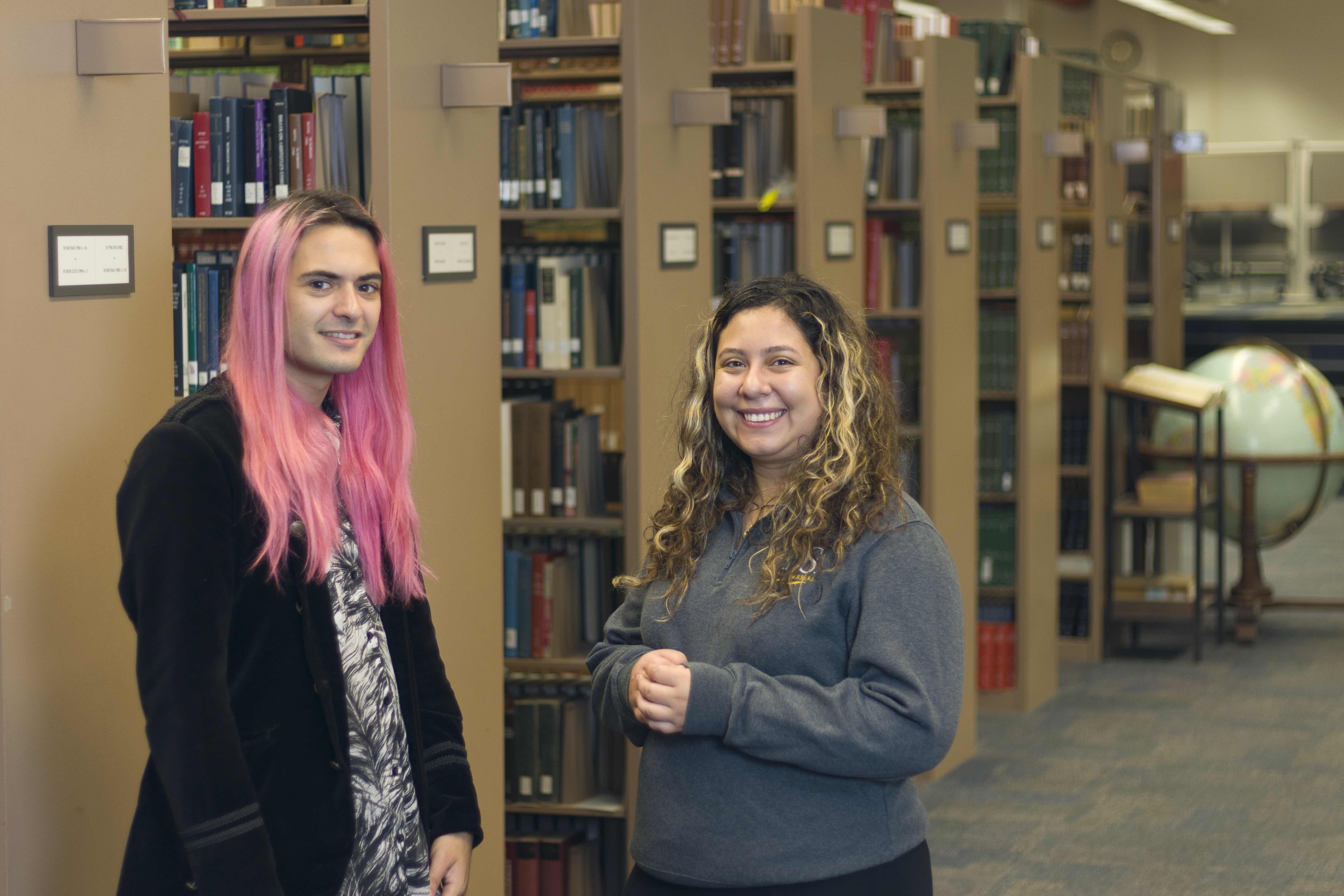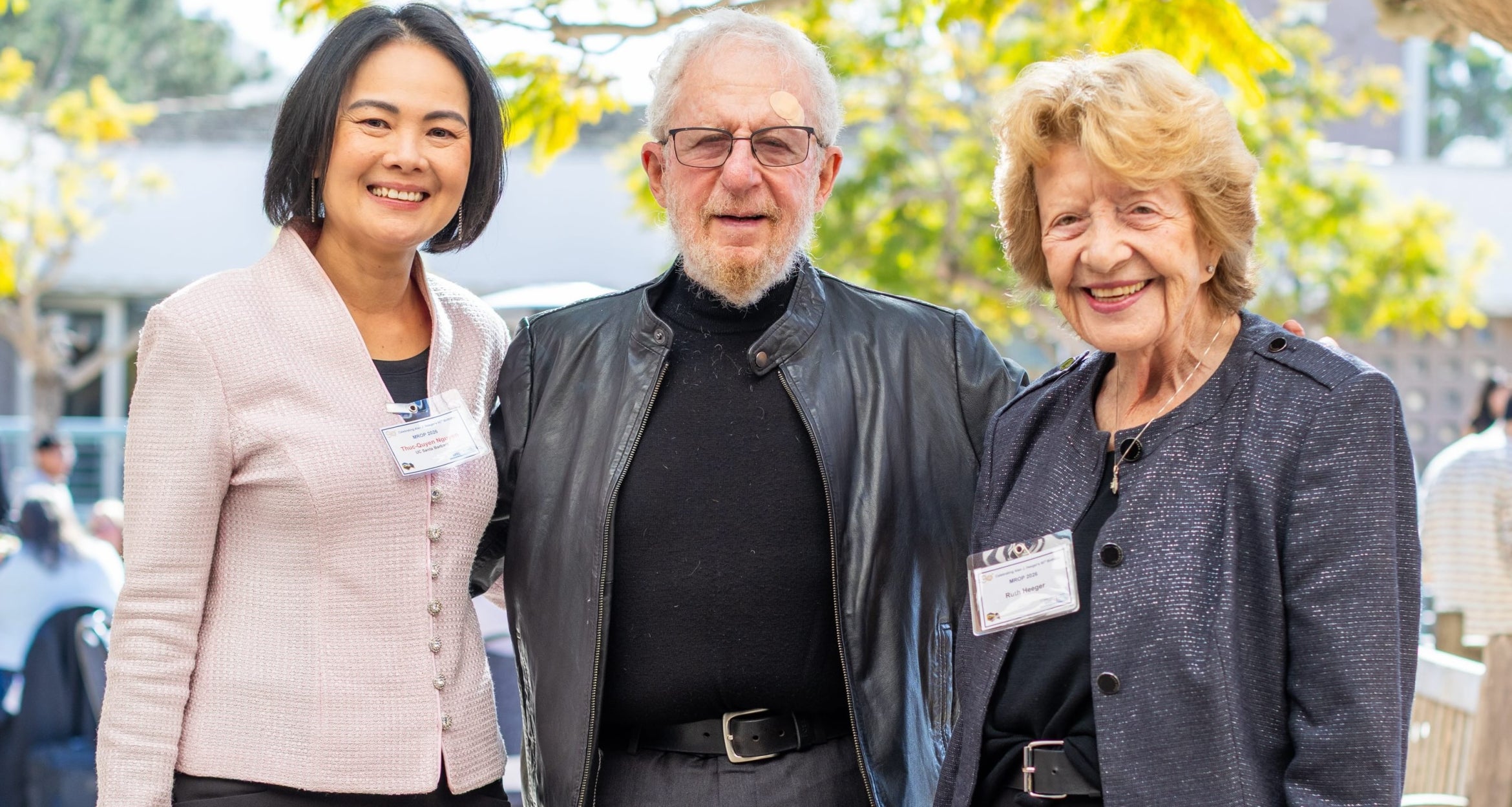
Graduate Scholars Program builds sense of community and connection for graduate students
It’s been a tough few years for graduate students as they’ve jockeyed their research, practicum and social lives between a pandemic and an historic strike. On a campus that prides itself on a strong sense of community, UC Santa Barbara’s Graduate Scholars Program (GSP) is seen as a model for nourishing exactly that.
GSP is a comprehensive program designed to provide support, mentoring and services for incoming graduate students from populations that are traditionally underrepresented in the academy. Scholars are paired with an advanced doctoral student mentor and receive a targeted orientation to campus resources, professional development opportunities and networking events across campus.
“The Graduate Scholars Program addresses the needs of students of color, first generation students, queer and nonbinary students, and others who are underrepresented in the university,” said Leila Rupp, Interim Graduate Dean. “It is never enough simply to recruit diverse students. We as a community must ensure that they have the support to excel. GSP opens the doors to belonging, serving as an antidote to acts of hate that far too often threaten the security of marginalized groups on the national as well as local level.”
Women in departments with enrollments of less than 25% women are also eligible to participate, as are Deferred Action for Childhood Arrivals (DACA) students, graduate students who are parents, veterans or military dependents, students with disabilities or any other students from non-traditional backgrounds.
Since launching during the 2016–2017 academic year with just 50 scholars, GSP now serves 115 scholars, with 37 mentors. To join GSP, students take a survey to indicate the type of mentor they are looking for. “Some important factors include whether a mentor is in their department or discipline, of a similar racial or ethnic background, experienced with mental health issues, a member of the LGBTQ community, pursuing an academic or non-academic career, or able to offer academic or emotional support,” said Michele Johnson, assistant director of Graduate Division Diversity Initiatives.
Scholars are then assigned to “mentoring families”: three incoming or second year doctoral students and a graduate student mentor who has advanced to candidacy. Mentoring families meet once a month to discuss successes and challenges, and anything from departmental milestones to networking and funding. This aspect of the program allows graduate scholars to connect with others that have similar backgrounds and experiences.
Some mentees go on to become peer mentors, strengthening the connection and support system. “I was a mentee for my first two years and then a mentor for the next three!” said Molly Wolfson, a doctoral student in physics. “The biggest impact this program has had for me was the connections with other people. I have met multiple people from this program that have become some of my strongest supporters, both academically and emotionally, as I pursue my Ph.D.” Wolfson also said that graduate school can be an isolating experience. Knowing a few people to reach out to in difficult circumstances can make all the difference.
Other mentors noted the need to teach stress coping measures and being “kind to ourselves.” “My mentees are extremely brilliant and ambitious people, and as Ph.D. students, we often stress ourselves out more than we need to,” said Vinnie Wu, a graduate student in psychological and brain sciences. “All our journeys are different, so we shouldn't compare ourselves to others. And there isn't a set formula to ‘success,’ so we need to be kind to ourselves and give ourselves permission to celebrate all our accomplishments, to allow ourselves a maintainable work-life balance, to ignore the harsh criticisms and so on.”
Sepideh M. Alavi, a graduate student in the Department of Counseling, Clinical & School Psychology, echoed Wu’s sentiment, noting that it’s important to have a holistic approach when it comes to thriving and academic achievement. “We are all overachievers and have mastered the skills to succeed in academia, but it's important not to lose sight of the other domains of our lives and the things that bring us joy, especially as our schedules get tighter and as we get busier,” said Sepideh. “Actually, it’s during those busy times that it is important to slow down for brief moments throughout the day and attend to our mind, body, emotional, relational and spiritual needs.”
In addition to peer mentorship, GSP also helps connect students to public and campus resources for aid, said Felicia Rutland, Graduate Division diversity and outreach peer and a mechanical engineering graduate student. She noted that since the start of the academic year, the program has connected with CalFresh and Basic Needs, Counseling and Psychological Services (CAPS), Campus Advocacy, Resources and Education (CARE), the MultiCultural Center (MCC), the Center for Innovative Teaching, Research and Learning (CITRAL), Instructional Development (ID), The Global Latinidades Project, UCSB Mental Health Task Force, Graduate Student Association (GSA), Graduate Students for Diversity in the Sciences (GSDS), Womxn in Science & Engineering (WiSE) and the Queer & Trans Graduate Student Union (QTGSU).
Learning about resources is one of the most beneficial aspects of the program, said Heath Pennington, a graduate student in theater, dance and performance studies who has gone from mentee to mentor. “My mentor helped connect me with lots of institutional knowledge,” they said. “If I could give my mentees one concrete takeaway, it would be knowing where to find and how to take advantage of resources, from the food banks to CARE, affinity organizations, fellowships to apply for, Grad Div’s Individualized Professional Skills program, and more!”
GSP receives funding from U.S. Bank. “At U.S. Bank, we believe in powering human potential, and our Community Possible platform is designed to support programs that help provide pathways to higher education,” said UCSB alumna Anabel Santamaria, Santa Barbara community affairs manager for U.S. Bank. “It is with great pride that U.S. Bank supports UC Santa Barbara’s Graduate Scholars Program, providing the diverse doctoral student community with the academic, professional and social support systems allowing them to reach their educational goals and achieve personal success.”
Debra Herrick
Associate Editorial Director
(805) 893-5446
debraherrick@ucsb.edu



